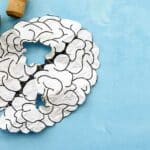- Alcohol-Induced Blackouts
- Alcohol Consumption & Memory Loss
- Amount Of Alcohol That Can Cause A Blackout
- Risks Of Alcohol-Induced Blackouts
During an alcohol-induced blackout, a person can suffer from short-term memory loss, where they are unable to recall events that happened when they were heavily intoxicated.
A person may still be conscious during a blackout, but may remember few, if any, events that happened by the next day.
An alcohol-related blackout can happen when a person drinks a large amount of alcohol in a short amount of time, including binge drinking. Alcohol can prevent memories from moving to the hippocampus, the area of the brain responsible for long-term storage of memories.
Any person drinking alcohol may be at risk of a blackout, regardless of age or experience with drinking. Blacking out frequently may be a sign of alcohol use disorder, due to an inability to stop drinking before a memory blackout happens.
Alcohol-Induced Blackouts
There are two types of blackouts that can occur due to alcohol: fragmentary blackouts and complete blackouts.
Fragmentary Blackouts
Fragmentary blackouts, also known as brownouts or grayouts, are characterized by patches of memory loss broken up by vague scenes and patches a person can remember. After becoming sober, they may remember more events from the brownout.
Complete Blackouts
Complete blackouts, or en bloc blackouts, involve a complete loss of memory during the intoxication period. New memories may not form during an en bloc blackout. People who experience blackouts of this nature can have irreparable gaps in their memory.
Alcohol Consumption & Memory Loss
Memories form in the brain through a multi-step process. Alcohol use can interfere with the initial stage of memory formation known as the encoding stage.
The specific effects of alcohol that lead to memory loss are still being studied. A 2000 study reported that brain cells in the hippocampus may be especially sensitive to alcohol consumption.
The hippocampus is crucial for processing contextual information, a key element of short- and long-term memory formation. Without proper context, a person is less likely to recall memories.
Amount Of Alcohol That Can Cause A Blackout
A person may experience memory impairment when their blood alcohol concentration, or BAC, reaches 0.16%. A BAC level of 0.16% is twice the legal limit for driving a motor vehicle, which is 0.08%.
Blackouts may happen at lower blood alcohol content levels if alcohol consumption happens on an empty stomach, or if alcohol is consumed along with sleeping aids or antidepressants.
At extremely high BAC levels, people experience severe impairment in their decision-making, motor control, and judgment. They may also be at an increased risk for alcohol poisoning and be too impaired to help themselves.
Risks Of Alcohol-Induced Blackouts
Due to severe impairment in motor control, judgment, and decision-making, a person who is blackout drunk may be at a greater risk for dangerous behaviors. They may also have little to no memory of high-risk behaviors the next day.
Risky behavior during a blackout may involve:
- unprotected sex
- operating vehicles or machinery
- falling from heights
- violent behavior
In addition to immediate dangers, alcohol-induced blackouts consistently expose the body to high amounts of alcohol. Uncontrolled excessive drinking can lead to long-term effects such as, alcohol addiction, alcohol dependence, liver disease, mental health problems, and more.
If you or a loved one are struggling with heavy drinking problems, contact Northeast Addictions Treatment Center to learn about our effective treatment options today.
Sources
- International Journal of Environmental Research and Public Health — Alcohol-Induced Blackout
- National Institute on Alcohol Abuse and Alcoholism — Interrupted Memories: Alcohol-Induced Blackouts
- National Library of Medicine: PubMed — Effects of ethanol on hippocampal place-cell and interneuron activity
Written by
Northeast Addition Editorial Team
©2024 Northeast Addition Center | All Rights Reserved
This page does not provide medical advice.





